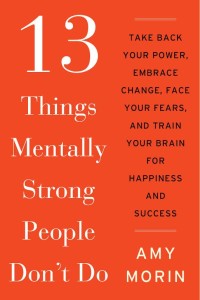Every therapist knows that ethics is a critical component of working with clients. Once you add social media into the mix, things can get even more complicated. I’ve noticed that unfortunately, some in the profession are resistant to embracing technology and building an online presence related to their practice because of fear of the potential ethical problems. It’s true that there are risks involved in going online, but we don’t need to be run by this fear; the risks can be managed, and, as we’ve talked about so many times before, the benefits are staggering.
Here are 3 Ethical Fears of Being a Therapist Online, and How to Resolve Them:
1) A Client Breaking Professional Boundaries
If you’re findable on the internet, naturally you’re easier to contact as well. And while we find that most clients respect boundaries with their therapist, some may choose to disregard common rules of protocol, especially when a professional’s online presence facilitates their ability to do so.
Mari A. Lee, an LMFT who specializes in sex addiction recovery, prevents this by having her clients sign a social media form as part of the intake packet. “I do not allow clients to post to my business Facebook page or private message me,” she explains. “I do not accept friend requests or professional links from therapy clients on LinkedIn.” Mari describes how the few times that a client has attempted to add her, she simply redirects them back to her policy. By doing, she has never encountered an incident of professional boundaries being crossed (read more about Mari’s experience here).
Overall, being clear about what is and is not acceptable for your clients with regards to social media will all but prevent problems from occurring. Develop a social media policy for your practice, include it in your initial client paperwork, and have it available on your website (read more about developing a social media policy here). While you must be firm about your boundaries, try to communicate your expectations in a way that is not alienating or harsh. A client reading your content online is a good thing, so you don’t necessarily need to discourage all forms of social media engagement; it is direct contact that is prohibited.
2) The Risky Possibility of Dual Relationships
We all know that therapists in private practice should be cautious when entering dual relationships with clients and be mindful of the potential risk of exploitation or harm to the client. This caution extends to online dual relationships as well. If you as a therapist have an online presence and engage in multiple professional activities (publishing, consulting, etc.), you might be worried that a client could feel pressured to purchase additional services or products from you. Whereas before you were a person that your client saw in an isolated setting, you are now an established figure that he/she can read about or follow anytime on the internet.
This fear really is unfounded. It’s okay for someone to find you online and understand that you are selling something in addition to seeing clients. As long as you’re not soliciting these things during a private session, you don’t need to try and hide the fact that you do other things. Your ethics courses taught you what need to know about avoiding these kinds of interactions.
If you think there might be a legitimate possibility that your outside professional activities encroach on the ethical integrity of your counseling, consider the following: Dr. William Doverspike, a licensed psychologist and president of the Georgia Psychological Association, proposes a very simple ethics test when contemplating dual relationships. Ask yourself these 5 questions to determine whether or not your online activities are ethically sound in relation to your clinical practice:
Is there a chance of:
- loss of effectiveness of the professional?
- loss of objectivity of the professional?
- loss of competence of the professional?
- risk of exploitation of the client?
- risk of harm of the client?
If you can answer an honest no to all of these questions, you’re just fine in pursuing your other activities.
3) Posting TMI
Most of us have witnessed someone who gets too personal on Facebook or on other social media outlets. These platforms can be great for sharing information and photos and keeping in touch with one another, but sometimes people go too far.
Being cautious with social media activities becomes even more important for a therapist with an online presence. Where does your personal life begin and your work life end? Would your relationship with your client be jeopardized by something you posted about your own life? Is it possible for something to be appropriate for your personal page but not for your business page? Keep in mind that social media platform privacy settings are constantly shifting and that there is no guarantee that some information posted on personal profiles may still be accessible.
I trust that my friends reading this right now aren’t the type who post blatantly inappropriate or disrespectful material, but it can still be challenging to find that line. Here is the rule that I’ve created for myself that has worked well for me: if I wouldn’t feel comfortable with anyone in the world viewing it, I won’t post it at all. It’s that simple.
Once again, this potential ethical problem is easy to avert. Use common sense, your ethics training, a social media policy, and your best judgment. Overall, just trust yourself as to what to post; you are a professional after all!
The point of this post is that you don’t need to be run by fear when it comes to social media engagement. I encourage you to embrace the technological world and let it benefit both you and your clients.

I wrote an in-depth article about social media ethics. Click here to read it.
Get practice tips and blog updates in your inbox. Sign up for the Private Practice Toolbox Newsletter here
Join my Private Practice Toolbox Facebook group and connect with 2600 therapists around the globe in 2 simple steps: 1) Click request to join the group and 2) Fill out this brief questionnaire before you'll be added to the group.










As healers, we genuinely like to do our work. Guiding clients through the therapy process and seeing them make progress is why we do what we do. But if you're in private practice, you know there's a lot going on in the back end and that it's crucial to run an efficient and organized business.